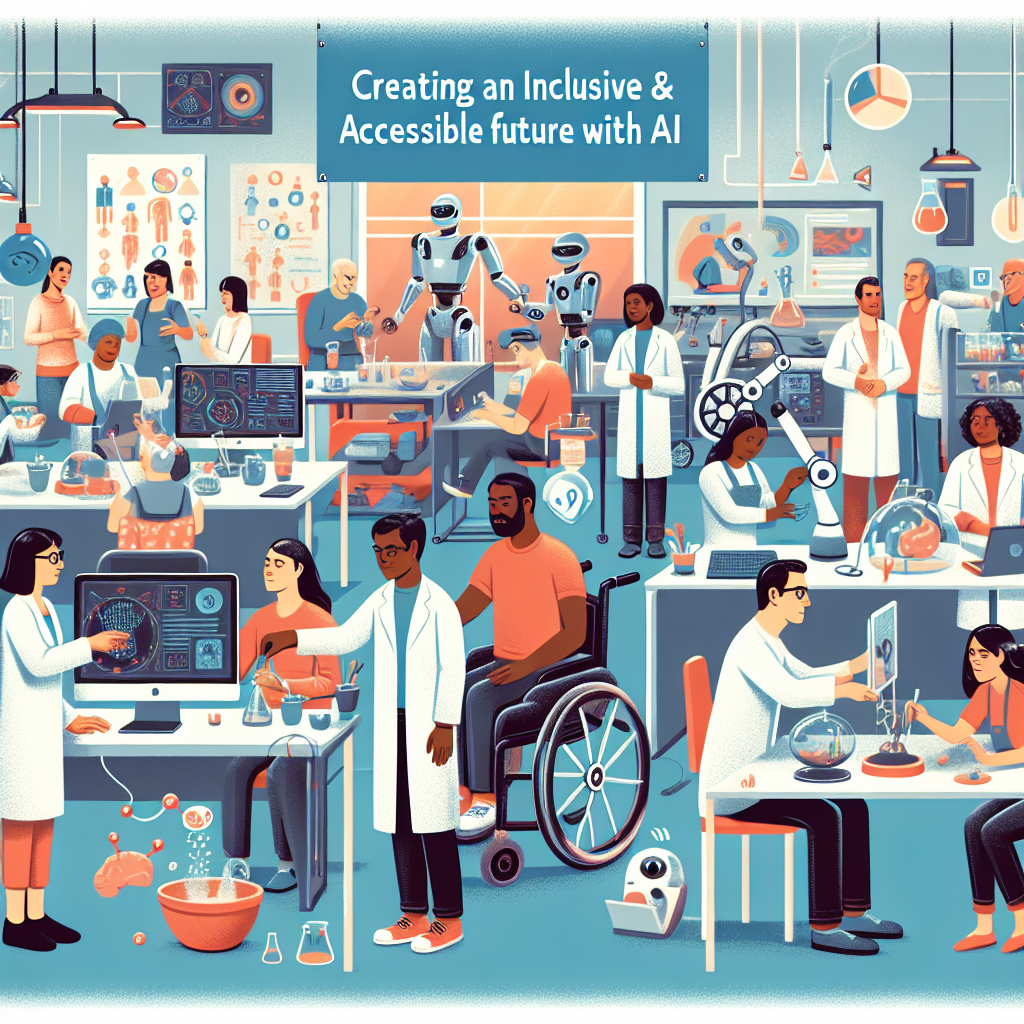Intelligent Assistive Technology
At the Assistive AI Lab, we explore the frontier of Intelligent Assistive Technology, leveraging artificial intelligence to create solutions that enhance the independence and quality of life for individuals with diverse needs. Our research focuses on developing smart systems that can perceive user needs, adapt to different contexts, and provide timely assistance. This includes exploring AI-driven innovations for mobility support, daily living activities, and personalized interventions, moving beyond traditional assistive devices towards truly intelligent companions. We investigate how AI can make assistive technologies more intuitive, responsive, and integrated into the user’s life, aiming to bridge gaps and empower users in novel ways.

Alternative UX/UI Design for People with Special Needs
Understanding that conventional interfaces often create barriers, our lab is dedicated to designing and evaluating Alternative User Experiences (UX) and User Interfaces (UI) specifically tailored for people with special needs. We investigate novel interaction modalities beyond standard visual and motor interfaces, exploring areas like gaze interaction, voice control, haptic feedback, and AI-powered adaptations. Our goal is to create inclusive digital environments where technology adapts to the user, not the other way around. This involves human-centered design processes, co-designing with target user groups, and applying AI to personalize interfaces, ensuring accessibility and usability for everyone, regardless of their abilities.
Minority Generated Data in the Big Data Society
In an era dominated by big data and AI, the Assistive AI Lab critically examines the challenges and implications surrounding data generated by or about minority groups, including individuals with disabilities, the elderly, and other underrepresented populations. We recognize that data drives AI development, yet data from minorities is often scarce, misrepresented, or collected without adequate consideration for privacy and context. This can lead to biased algorithms, inaccessible technologies, and digital systems that perpetuate societal inequalities. Our research investigates methods for fair and ethical data collection, techniques to mitigate bias in datasets and AI models, and strategies to ensure that the insights derived from big data truly benefit all members of society. We explore how AI itself can be used responsibly to understand the unique needs reflected in minority-generated data, ultimately aiming to foster more equitable and inclusive data ecosystems for the development of assistive and accessible technologies.
3. AI-Empowered Human Services
We research how Artificial Intelligence can augment and transform human services, particularly in healthcare, rehabilitation, and support systems[4][9]. Our work investigates the potential of AI to assist caregivers, therapists, and service providers by offering data-driven insights, automating routine tasks, and enabling new forms of remote support and monitoring. This includes developing AI tools for better assessment, personalized intervention planning, and facilitating communication between service users and providers. We aim to create responsible and ethical AI solutions that enhance the capacity and effectiveness of human services, ultimately improving outcomes for those who rely on them.
4. Information Accessibility
Ensuring equitable access to information in the digital age is a core focus of the Assistive AI Lab. We investigate how AI can break down barriers to information access for people with disabilities, including visual, auditory, cognitive, and motor impairments. Our research explores AI techniques for automatic content adaptation, multimodal presentation of information (e.g., text-to-speech, speech-to-text, sign language generation), and creating accessible digital documents and web experiences. We strive to develop AI solutions that not only comply with accessibility standards but proactively enhance the usability and comprehension of information for all users.
5. Rehabilitation Robotics
Our lab explores the intersection of AI and robotics to advance the field of rehabilitation. We focus on developing intelligent robotic systems that can assist in physical and cognitive rehabilitation therapies. This includes designing exoskeletons, therapeutic robots, and robotic aids that can provide personalized, engaging, and quantifiable therapy sessions. We leverage AI for motion analysis, adaptive control, human-robot interaction, and tailoring therapy protocols based on individual progress and needs. Our goal is to create effective robotic tools that support clinicians and empower patients throughout their recovery journey.
